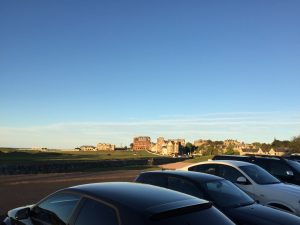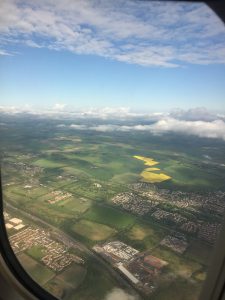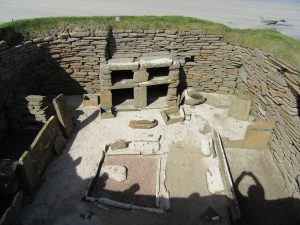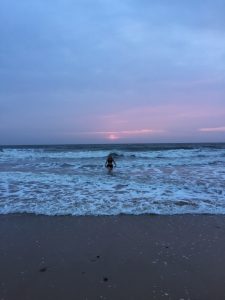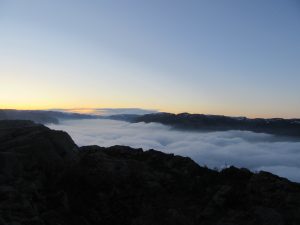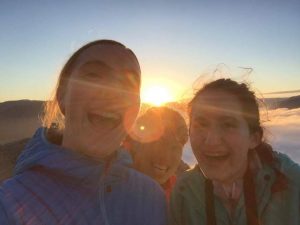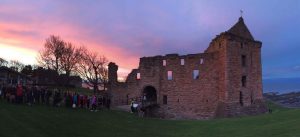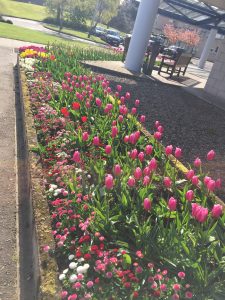Written May 22
My semester at St. Andrews is finally complete, and I do not know whether to be ecstatic or melancholy. I am ecstatic because finals are over, because I am done taking two classes I do not enjoy, because I am going home to friends and family I love, and because I can finally eat good fish again. But I am also melancholy because though the academic side of my semester abroad was rougher than I had hoped, everything else was wonderful. I made a new great friend, I traveled around a beautiful country full of kind and friendly people, I danced at two cèilidhs which make me beyond happy, and I loved my programming class. I have braved public transport, finnicky stovetops and showers, a sunrise ocean jump, and haggis. And I finally got used to having cars on the left side of the road, and now I have to go back!
Since this is my final blog, I want to answer two questions I feel anyone who reads this might want to know.
1) Why St. Andrews?
I picked St. Andrews because it was in an English-speaking country, and it offered the STEM classes I needed. The reasons you might pick here might be different. St. Andrews is a larger school to break away from the small-class feel, and also gives you more opportunities to find other classes to take or more clubs and activities to join. Yet it is full of international students—and plenty of Americans—so you don’t really feel like you’re in a foreign country a lot. The town itself is still pretty small, but if you golf you will always be occupied, and there are plenty of shops, cafés, and restaurants and pubs so you do not necessarily have to feel like there is nothing there. And regardless, it is right on a beautiful ocean. In my decision, I was torn between St. Andrews and Otago in New Zealand. What won me over was that St. Andrews still takes their academics pretty seriously, which Otago seemed to not; also, though at first I was sad because I thought Otago might have more beautiful places to explore, I have discovered that I should not have discounted Scotland’s beauty so much. Since it is a smaller country it is easier to travel around, and you do not need a car to do it, and there are so many beautiful places nearby; not to mention that it is right next to Europe and Scandinavia if you want to travel a little further. In the end, St. Andrews is not that much different than Whitman—just bigger, with a more lenient academic system, and in easy distance to plenty of other fantastic towns and hiking places.
2) Is it worth studying abroad?
Yes. Yes. Yes. Now of course studying abroad isn’t really for everyone, but to be honest, I do not think anyone who knows me would have thought it was for me, either. What I appreciated about St. Andrews was that it was a chance to stretch my limited sense of adventure without feeling like I was throwing myself into a fire pit, which I would have felt had I gone to a country with a very different culture and a completely different language. In St. Andrews the culture was not very different from home, and because it was an international school then there was very little language barrier either. But that didn’t mean there wasn’t anything to be learned. If you remember from my Series of Unfortunate Events blog, I learned a lot of things by going to a different country than if I had never gone. And I think most importantly, it helps give you a boost of confidence in yourself. I was the one that planned my trips around Scotland. I was the one that dealt with things when they went wrong. I was the one that had to make myself try new things because I did not have friends or family or faculty telling me to do so. And when you are the one completely in charge of decisions like that, and you succeed (or at least survive), there is a source of pride instilled in you for that. Even if the semester I had was rougher than I may have liked, I will always be proud of the fact that I went and tried and on the whole, succeeded.
Scotland, you have been wonderful. And I will miss you.
Cheers everyone,
Brooke


